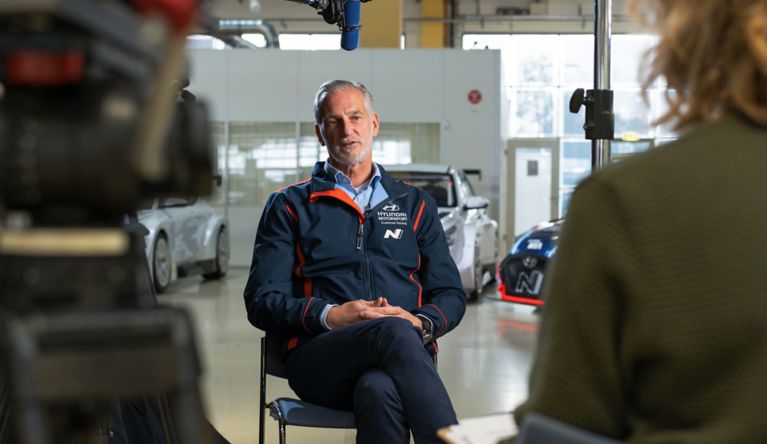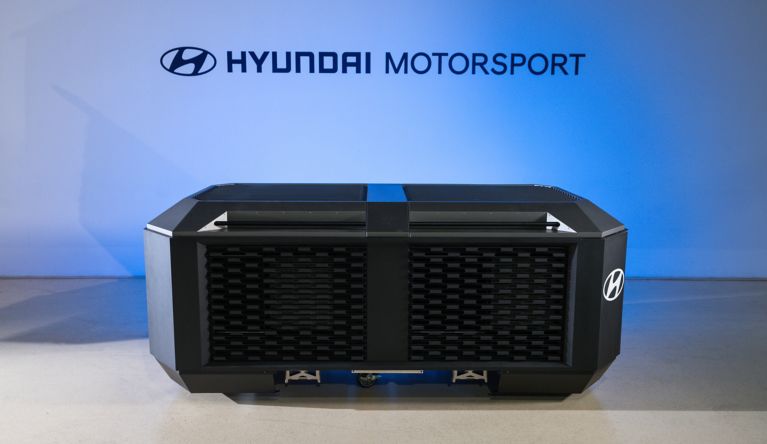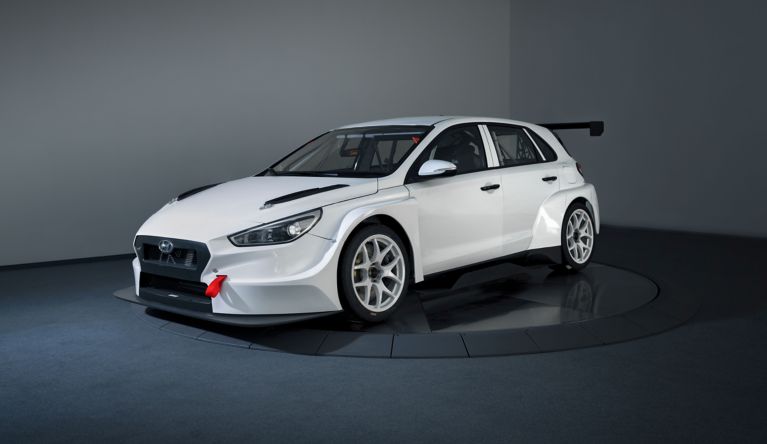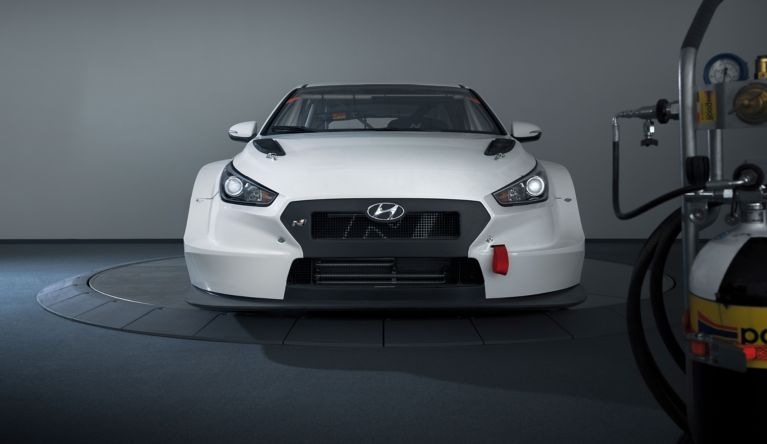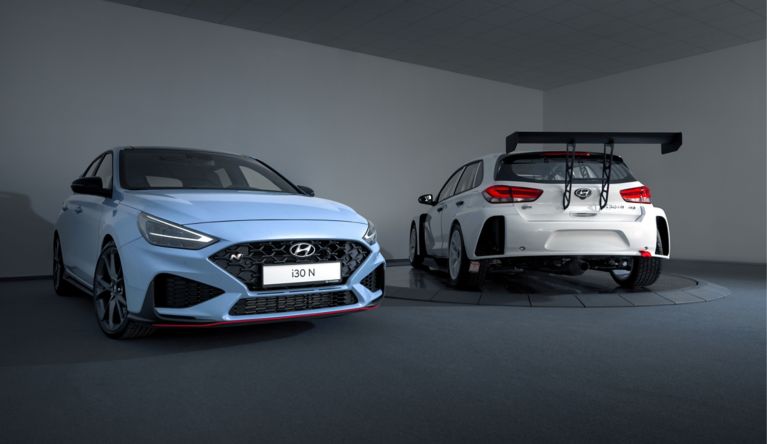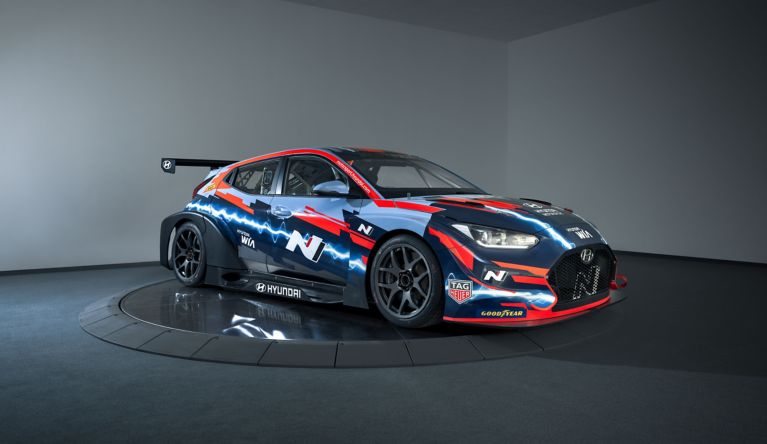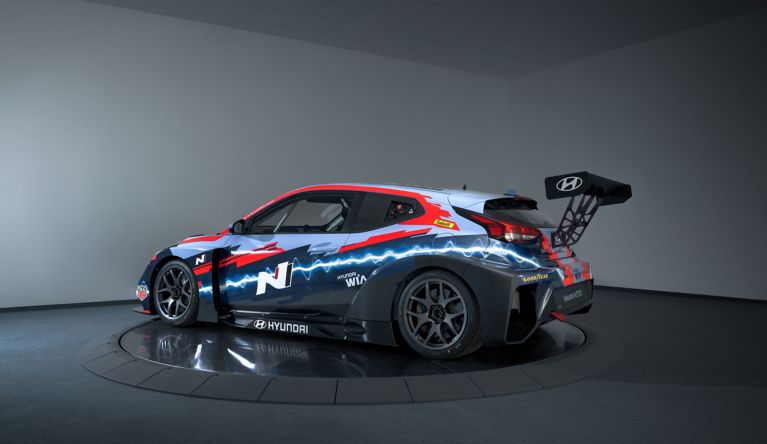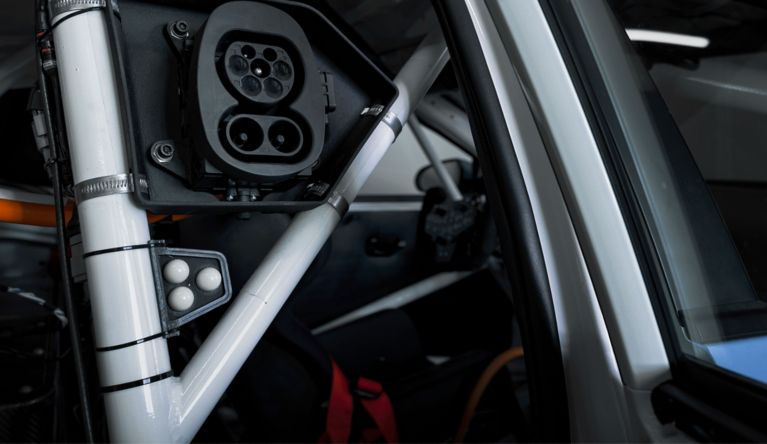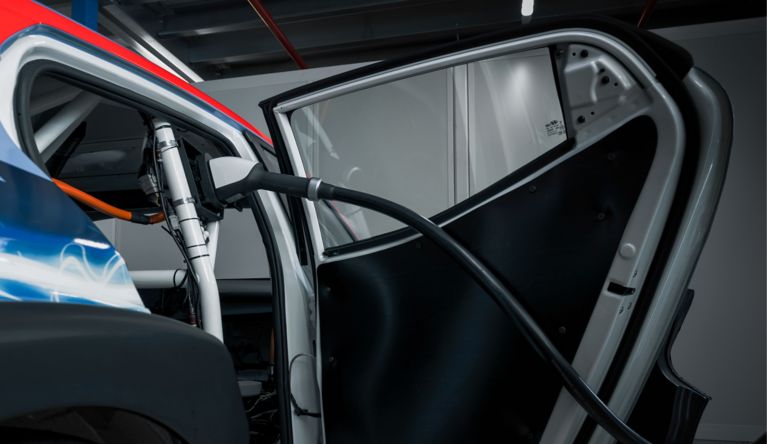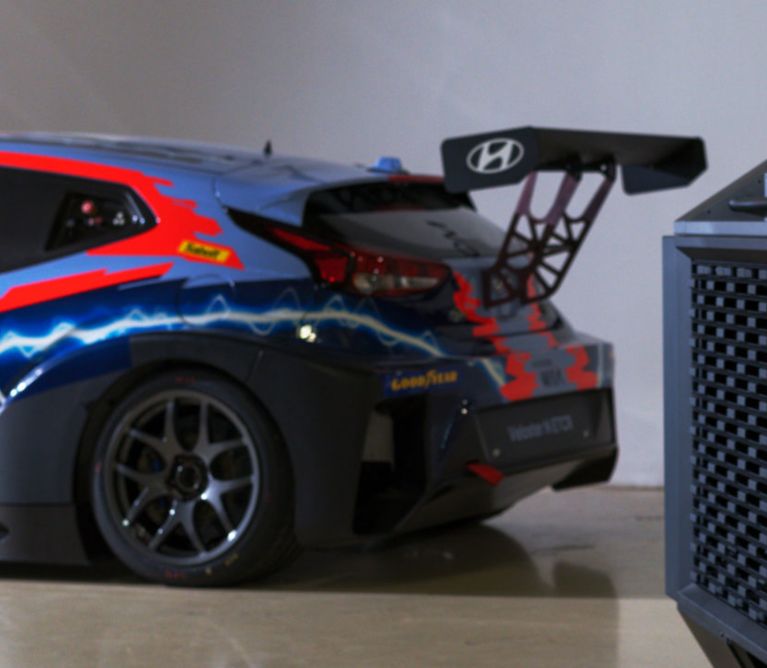- Hyundai is using motorsport as a testing ground for new technologies
- New Veloster N ETCR and i20 N Rally2 racing models are based on road-going Hyundai cars to illustrate technology transfer for the digital age
- By building an all-electric race car like the Veloster N ETCR, Hyundai proves that high-performance EVs are possible
PURE ETCR will set the benchmark for electric racing around the world and accelerate the transition to emissions-free mobility. Hyundai’s involvement marks the latest step in the company’s quest to make motorsport greener.
Hyundai Motorsport will compete in PURE ETCR with its new all-electric high-performance touring car, the Veloster N ETCR. It heralds an exciting new era for Hyundai, which will see electric racing become one of the pillars of the company.
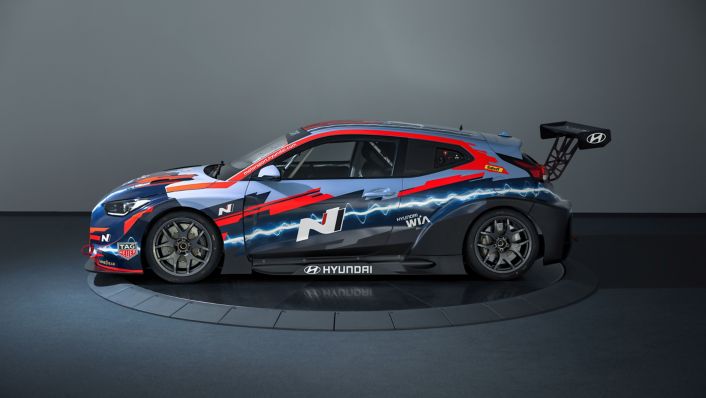
Alongside its electrification strategy, Hyundai has also used its leadership in fuel cell technology to develop its hydrogen generator. This generator will be able to charge electric cars through converting green hydrogen into charging power.
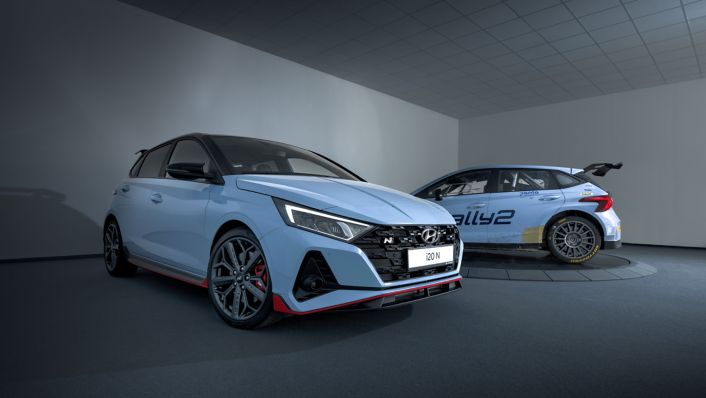
For Hyundai, motorsport is a field in which the company can do more than experiment with new technologies, which can then inform the development of its production cars. It reflects the company’s pioneering spirit that results in constant innovation and leadership in future mobility. Knowledge transfer between Hyundai Motorsport and the Hyundai N brand has proved fruitful so far, with success in both the WRC and TCR championships as well as well-received road cars like the all-new i20 N.
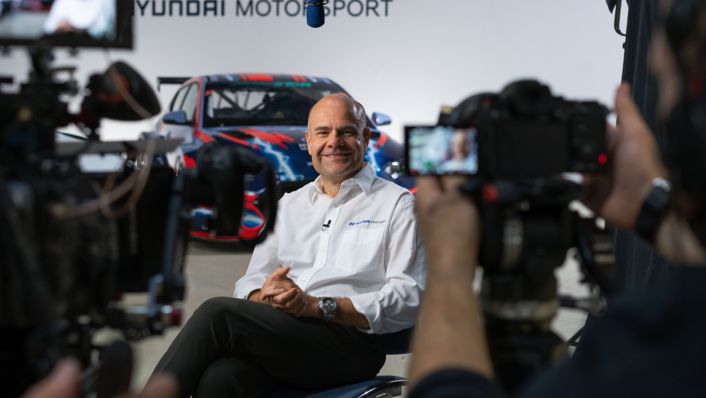
Hyundai is undertaking huge efforts to develop sustainable mobility for a better world, and motorsport is not exempt from this goal. That’s why we are very excited to have the opportunity to build on our WRC and TCR success as part of the upcoming PURE ETCR. With our holistic approach, we are able to significantly reduce emissions in motorsport while ensuring the spectacular sport we know and love remains fun, for drivers and fans alike.
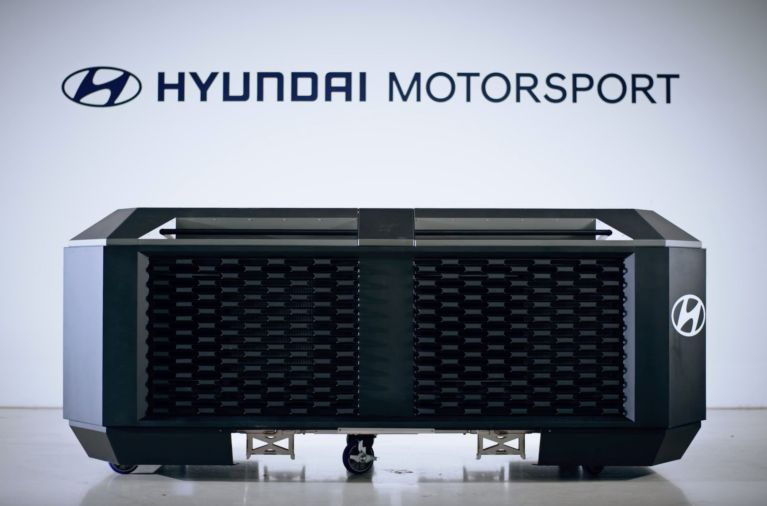
WRC and TCR: Hyundai’s motorsport heritage
Motorsport is an extension of Hyundai’s “performance” pillar. Despite being a fresh player in this field, the company has already made a mark. The Hyundai Motorsport team formed in 2012, overseeing the establishment of its Alzenau facility and the development of its first rally car, the i20 WRC. Hyundai Motorsport entered the FIA World Rally Championship for the first time in 2014. After five successful seasons laying the foundations for success, the team won the World Rally Championship for the first time in 2019. This feat was successfully repeated last year, as Hyundai strengthened its reputation in global motorsport.
After a successful foray into WRC, Hyundai Motorsport entered the world of circuit racing in 2018 with the i30 N TCR. Gabriele Tarquini took the car to the top of the inaugural WTCR standings in 2018. A year later, Norbert Michelisz powered the i30 N TCR to its second consecutive championship.
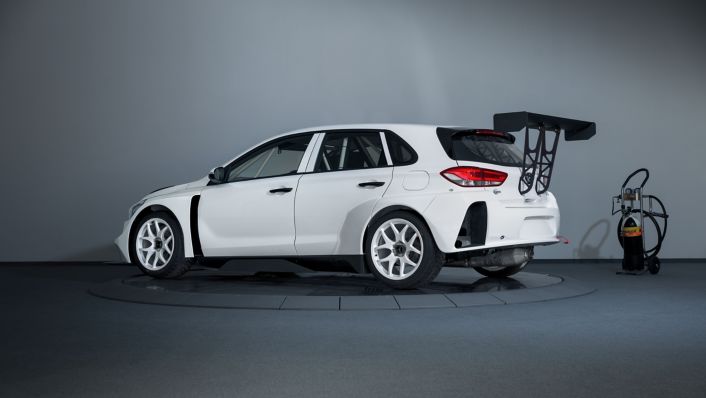
Technology transfer between Hyundai Motorsport and Hyundai N
Hyundai Motorsport competes in the WRC with the i20 Coupe WRC, which is based on a highly-modified version of the Hyundai i20. In the WTCR, the team races with the i30 N TCR. This dedicated touring car is based on the company’s first high-performance production model, the i30 N. Both cars demonstrate how Hyundai’s road-going models serve as an optimal basis for Hyundai Motorsport’s competitive racing cars.
The i20 Coupe WRC is equipped with a 1.6-litre turbocharged engine with direct injection, which is connected to a six-speed sequential transmission. It offers four-wheel drive and provides a maximum output of 380 PS, with 450 Nm of torque. As a further sign of the company’s commitment to sustainability in its performance models, Hyundai Motorsport is currently developing a mild hybrid powertrain for the i20 WRC. This is scheduled to launch in 2022, and it is set to be the world’s first rally car with such technology.
The i30 N TCR is powered by a two-litre turbocharged 4-cylinder inline engine, which is connected to a six-speed sequential gearbox. It features front-wheel drive and is fitted with a 100-litre fuel tank. It provides a maximum output of 350 PS with 450 Nm of torque.
As well as competing in WRC and TCR with models based on road-going cars, Hyundai uses motorsport as a testing ground for new technologies. This approach has a direct impact on the company’s future N production models through knowledge transfer. For example, the company’s latest racetrack-capable hot hatch, the all-new i20 N, is directly influenced by the i20 WRC car. The all-new i20 N carries the same weight as the minimum required in WRC and bears a rallying-inspired roof spoiler for enhanced aerodynamics.
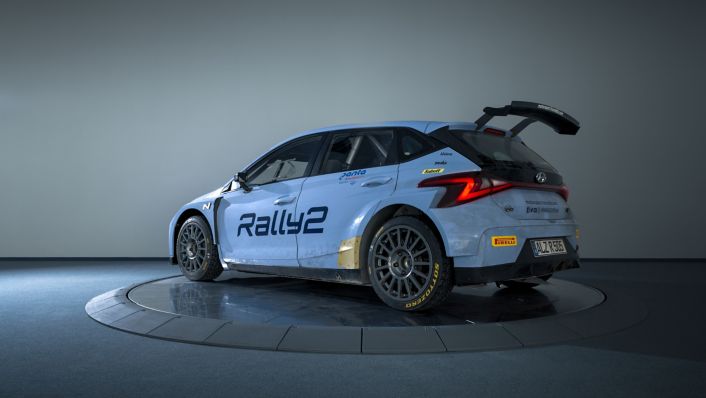
Hyundai Motorsport Customer Racing recently unveiled the i20 N Rally2, an all-new rally car intended for privateer teams and drivers. In another example of how Hyundai Motorsport and Hyundai N work together to enhance their performance offerings, the i20 N Rally2 car is based on the strong foundation of the all-new i20 N’s chassis. The i20 N Rally2 builds on the dynamic look of the road car – part of Hyundai’s new ‘Sensuous Sportiness’ identity – and includes several design elements inspired by the world of motorsport.
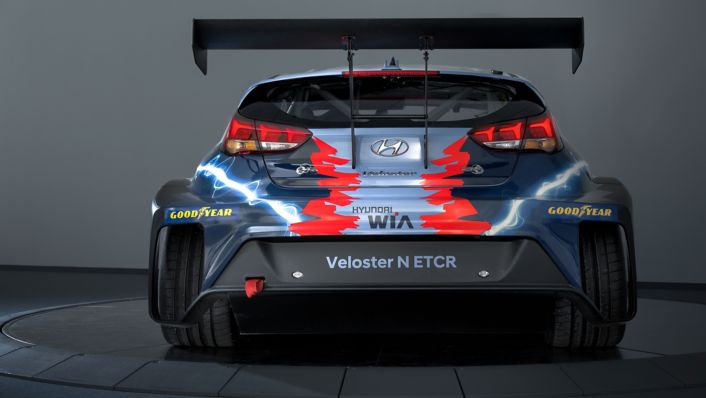
The Veloster N ETCR – Hyundai’s first all-electric high-performance vehicle
Ahead of the PURE ETCR championship, Hyundai Motorsport’s engineers designed and built the company’s first all-electric high-performance vehicle, the Veloster N ETCR, at its headquarters in Alzenau, Germany. Like the i30 N TCR and i20 N Rally2, it is based on a highly-modified version of another Hyundai N car, the North American Veloster N model.
Testing on the Veloster N ETCR began with a prototype design in September 2019, which the team continued to develop throughout 2020. It is a zero-emission, rear-wheel drive touring car with mid-mounted motors and designed specifically for ETCR regulations. Equipped with a 798-volt battery pack from Williams Advanced Engineering located in the floor of the car and a double-wishbone rear suspension, the chassis is radically different from any previous Hyundai Motorsport project. It boasts a peak power output of 500 kW (equivalent to 680 PS) and a continuous power of 300 kW. The Veloster N ETCR’s engine consists of four motors – two per wheel – which are connected to a single gear ratio gearbox.
ECTR is a testbed for Hyundai’s future mobility models. With the Veloster N ETCR, we are proving how cutting-edge technology can be combined with eco-friendly driving to make motorsport cleaner. By building an electric race car, we will prove a high-performance EV is feasible. The gathered knowledge and data through our experiences on the track are the basis to optimise and improve our BEV and FCEV models.

The hydrogen-powered Hyundai Generator
PURE ETCR presents Hyundai with the opportunity to push its electrification systems to the limit under the most extreme conditions. However, while high-performance is a key tenet for the company, it is also committed to making the competition, as well as the future of motorsport and performance cars more generally, as environmentally-friendly as possible. For Hyundai, this does not stop with the zero-emission drivetrain. Rather, the whole ecosystem has to be sustainable, from power generation to fuel transport.
Hyundai will be offering its new hydrogen generator as a recharging system for electric vehicles. The Hyundai Generator is the newest feature of emission-free electric charging and consists of two fuel cell stacks. First, the generator is filled up using tanks of compressed hydrogen. Inside the fuel cell stack, the hydrogen is exposed to oxygen. The ensuing chemical reaction generates energy. This energy is used to charge the batteries of the electric touring vehicles. This way, participants can be sure that the electricity used to charge the cars also comes from emissions-free, sustainable sources.
The Hyundai Generator allows two EVs to charge simultaneously. As well as featuring a high-speed charging capability, it also offers significantly reduced noise levels compared to a diesel generator. Beyond e-racing, Hyundai is also confident its hydrogen-powered generator has a range of different potential use cases, such as festivals, construction sites and crisis situations.
For Hyundai it is important to always have a holistic view on zero-emission mobility. With solutions like the Hydrogen Generator, we are able not only to run emission free vehicles but also guarantee that the electricity is produced emissions-free by using green hydrogen to power the generator. In Hyundai’s move to become a Smart Mobility Solutions Provider, we will further develop zero-emission appliances for different aspects of our lives.
How electric racing combines sustainability and performance
Electric racing represents the perfect opportunity for Hyundai to combine both environmental sustainability and motorsport, bringing together the brand’s “progress” and “performance” pillars. In the future, electric racing is set to become one of the core pillars of Hyundai Motorsport. ETCR showcases how future-oriented technologies and cleaner racing can be combined.
Electrified motorsport is also a way for Hyundai to reach out to new target groups. By developing an emissions-free touring car like the Veloster N ETCR, the company is demonstrating the feasibility of high-performance EVs. These models can be eco-friendly, while at the same time being fun to drive.
